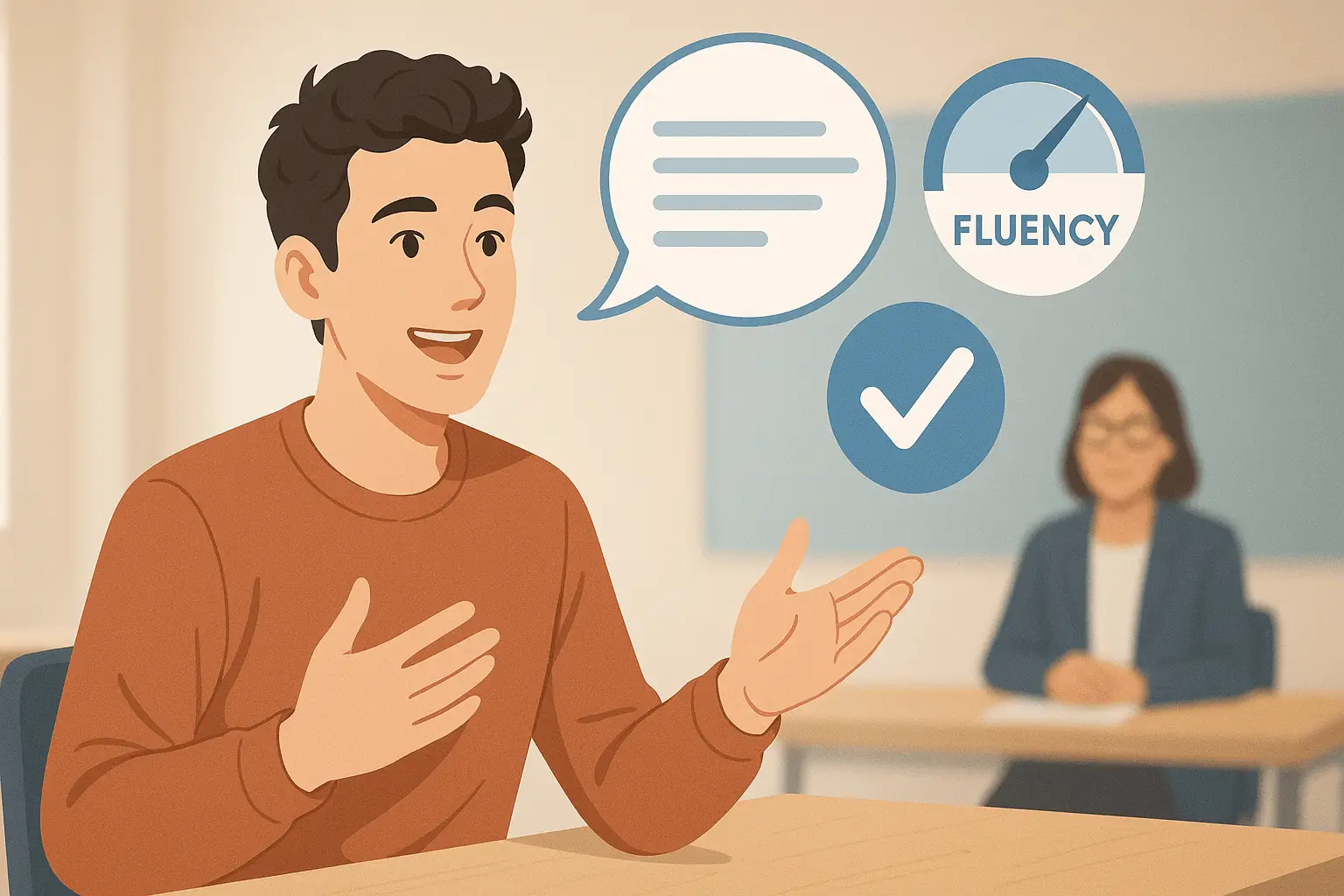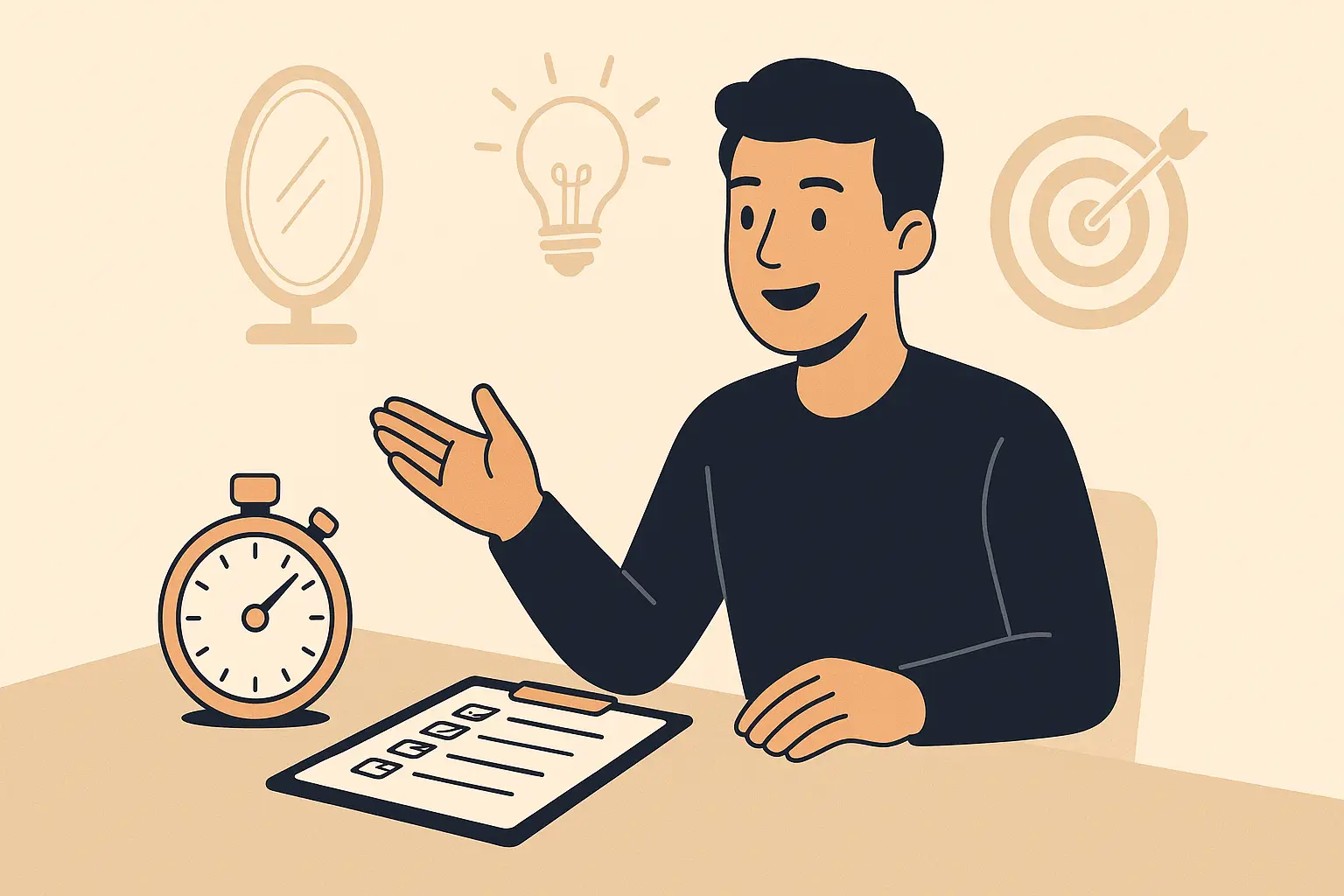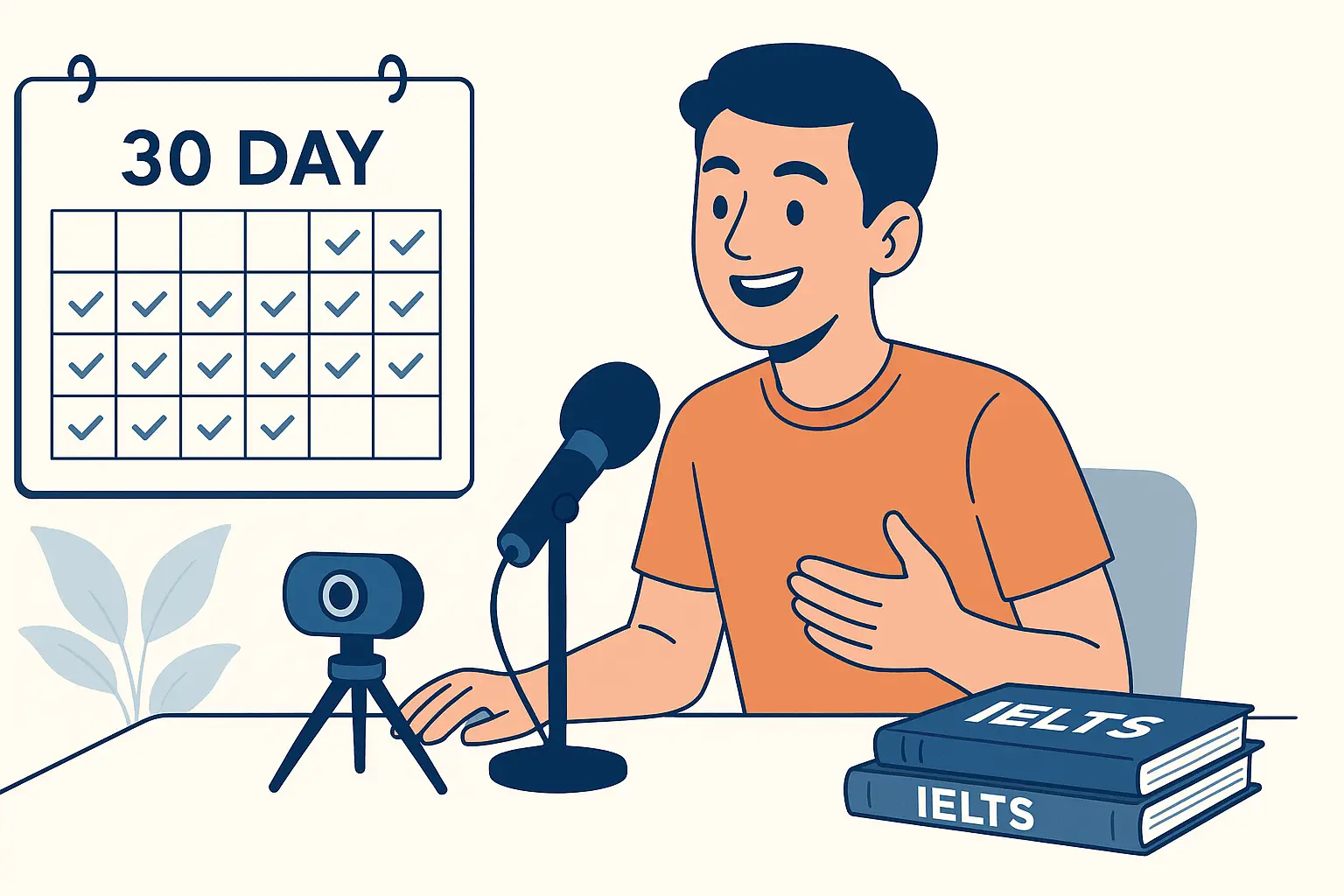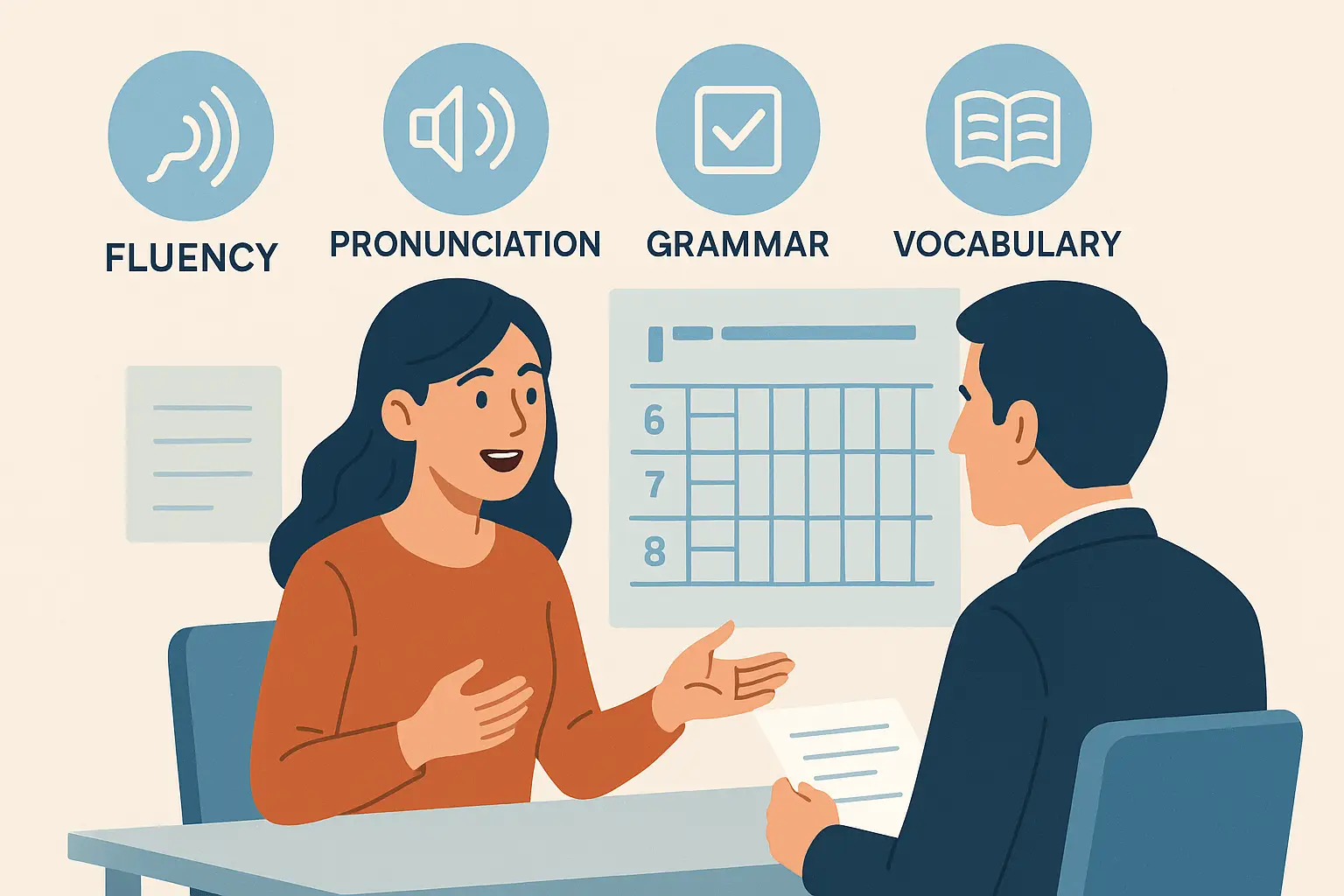- Why Short Answers Hurt Your IELTS Speaking Score
- Common Mistakes I See (and How to Fix Them)
- My 3-Step Formula to Extend IELTS Speaking Answers
- Boosting Fluency Without Sounding Rehearsed
- Real Student Success: From Band 6 to Band 8
- Smart Practice Tips
- FAQs on How to Extend Your Answers in IELTS Speaking Naturally
As an international IELTS teacher who has helped students from over 30 countries, one of the most common struggles I’ve seen is this: they know the answer, but they don’t know how to extend their answers in IELTS Speaking naturally.
They’ll give a one-line reply like “Yes, I do” or “I enjoy reading,” then freeze. This not only makes the examiner work harder, but it also limits your chance to demonstrate fluency, coherence, vocabulary, and grammar — all the criteria assessed in the test.
Let’s talk about how you can overcome this, with real tips I use in my classes every day.
Why Short Answers Hurt Your IELTS Speaking Score
When you give brief answers, you’re not giving the examiner enough language to assess your ability. A strong answer in IELTS Speaking should show your ability to expand ideas, connect thoughts, and speak naturally — just like you would in a real conversation.
Think about it: if the examiner asks, “Do you like cooking?” and you say, “Yes, I do”, that gives them almost nothing to work with. But if you say:
“Yes, I do — especially at weekends. I find it really relaxing after a busy week, and I love experimenting with different ingredients. My go-to dish is a spicy stir-fry I learned from my mum.”
Now that’s an extended, natural answer.
Common Mistakes I See (and How to Fix Them)
Many of my students struggle because:
- They translate directly from their native language.
- They think “more words” means “more mistakes,” so they play it safe.
- They don’t know how to build on a basic answer.
That’s why I teach a simple 3-step formula to extend answers in a natural, fluent way.
My 3-Step Formula to Extend IELTS Speaking Answers
Here’s the method I teach all my learners — from Bangladesh to Brazil, from Japan to Jordan:
1. Give a Direct Answer
Always answer the question clearly. Don’t avoid it.
🗣 “Yes, I enjoy travelling.”
2. Explain Why
This shows coherence and fluency.
🗣 “It helps me relax and explore new cultures.”
3. Give an Example or Personal Story
This adds personality and fluency.
🗣 “Last year, I went to Italy and learned how to make real pizza — it was unforgettable!”
Put it all together:
“Yes, I enjoy travelling. It helps me relax and explore new cultures. Last year, I went to Italy and learned how to make real pizza — it was unforgettable!”
This structure not only helps you extend your answers in IELTS Speaking naturally, but also makes you sound confident and fluent.
Boosting Fluency Without Sounding Rehearsed
Some students worry that preparing answers will make them sound robotic. That’s valid — the examiner doesn’t want memorised answers.
The solution? Practice flexible frameworks, not scripts. In my classroom, I encourage students to create “answer patterns” they can adapt to different topics. For instance:
- Describe your preference
- Give a reason
- Add a detail or story
This works for Part 1, Part 2, and even Part 3 of the test.
You can find more about fluency and natural delivery in this detailed guide on grammar, pronunciation & fluency that I’ve built just for you.
Real Student Success: From Band 6 to Band 8
One of my students, Nami from Japan, used to give short, hesitant replies. She often said things like, “Yes… because I like it.”
Through focused practice using this structure and feedback loops, she became more expressive and fluent. Her Band 6.0 speaking score jumped to Band 8.0 in just 6 weeks. The difference? She learned how to extend her answers in IELTS Speaking with confidence and natural flow.
Smart Practice Tips
To get this right, you need regular, targeted practice. Here are my top recommendations:
✅ Record yourself answering common IELTS questions. Then review: Did you answer, explain, and expand?
✅ Practice with a partner or tutor who can ask follow-up questions.
✅ Use mock platforms or sample questions from IELTS.org, British Council IELTS and IDP IELTS — they offer great topic banks.
✅ Read this complete guide to IELTS Speaking to understand how your extended answers help with scoring.
FAQs on How to Extend Your Answers in IELTS Speaking Naturally
Q1: Is it okay to give long answers in Part 1?
Yes, but don’t give speeches. 2–4 sentences that explain, give a reason, and include an example are ideal.
Q2: What if I repeat the same vocabulary?
That’s common, but aim to vary your words using synonyms and descriptive phrases. Practice paraphrasing.
Q3: Should I use linking phrases to extend?
Absolutely. Phrases like “for example,” “actually,” “that reminds me,” and “because of that” help extend your answer naturally.
Q4: Can I prepare my answers in advance?
You can prepare patterns and ideas, but not memorised scripts. IELTS examiners can spot those instantly.
Q5: How can I avoid sounding unnatural while extending my answers?
Use a conversational tone and personal stories. Imagine you’re chatting with a friend — that helps you sound authentic.
Final Note:
Learning how to extend your answers in IELTS Speaking naturally is a skill you can master — not overnight, but with consistent practice, feedback, and the right techniques. I’ve seen hundreds of students do it, and so can you.
🔗 Ready for more? Head over to the full IELTS Speaking Guide to level up every part of your test.





